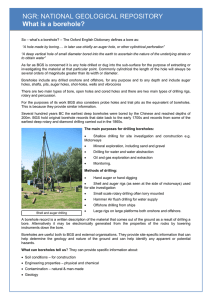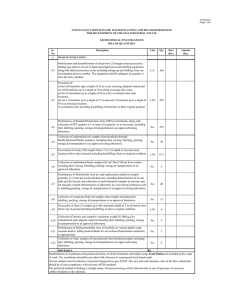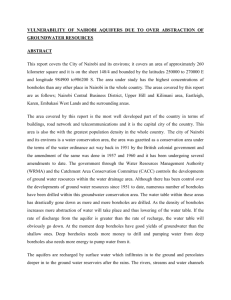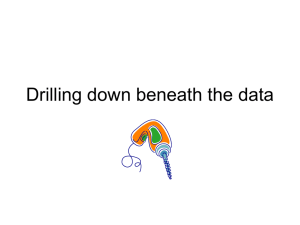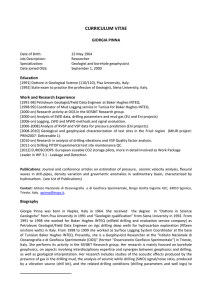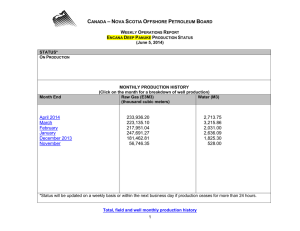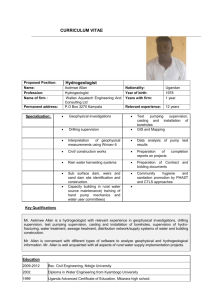Geotechnical work
advertisement
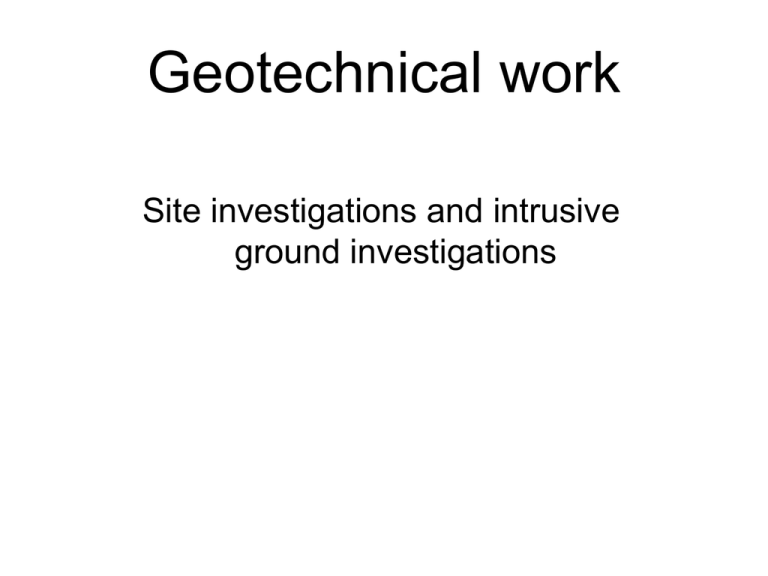
Geotechnical work Site investigations and intrusive ground investigations Geotechnical work Intrusive Ground Investigations Introduction: Geotechnics Ltd have been appointed by United Utilities Water plc to carry out site Intrusive Ground Investigations investigation works as part of a pipeline scheme. This leaflet is designed to illustrate the type of activity which may be required on your land. We will be happy to agree your Geotechnics Ltd Saltney Chester have beenhole appointed to carry out protection site investigation preferred access routes to the exploratory locations together with ground measures and reinstatement prior to the commencement of work. works as part of a pipeline scheme. This PowerPoint is designed to illustrate the type of activity which may be required on your land. Trial Pits • Trial pits provide a visual assessment of soils close to ground surface. • They tend to be used for a rapid shallow sampling programme. • They can be produced by a variety of methods from hand dug pits to machine excavated trenches. • Trial pitting is usually carried out to a maximum depth of 4.5m, depending on soil conditions. Window Sampling & Dynamic Probe Testing Window sampling is used on sites where there is restricted access or where shallow samples are required without the potential disruption caused by trial pits. A Window sampler is a portable drilling rig. It can be track mounted or hand held. Samples are retrieved form a “window” shell or in plastic tubes which have been driven into the ground. Monitoring instrumentation can also be installed in the boreholes. Cable Percussive Borehole • Cable percussive boreholes are the most common method of site investigation. • Used for shallow exploration of soils and soft rock. • Drilling rigs vary in size and shape and are often modified to suit site conditions. • Typically, they are an A-frame from which a steel tube is driven into the ground by repetitively dropping and lifting it. • This method of boring permits in-situ testing techniques including Standard Penetration Testing (SPT), • Permeability Testing, • Borehole Vane Testing, • providing information for geotechnical design. • Disturbed and undisturbed samples can be retrieved from the boreholes. • Monitoring instrumentation can also be installed in the boreholes. Rotary Drilled Boreholes Rotary drilling techniques are used for boreholes in rock. The equipment may be truck mounted, track mounted or tractor mounted. The rig also needs extra equipment such as a compressor and a water bowser. There are two forms of rotary drilling, open-hole drilling and core drilling. Open-hole drilling uses a cutting bit to break down all the material within the diameter of the hole. In core drilling, a diamond or tungsten bit cuts a hole in the rock and an intact core enters the barrel, which is then removed as a sample. Rock cores Testing for core for rock strength to left. Selection rock cores to right. Storage of rock cores bottom right Installations & Instrumentation Boreholes also enable the installation of instrumentation for the measurement of various factors. Instrumentation may include a) extensometers / inclinometers for the measurement of ground movement; b) standpipes and piezometers allowing the monitoring of ground water and gas regimes. Instrumentation and instillation Standpipes and piezometer installations maybe be completed in various ways to suit existing land use. Ground protection • When carrying out works Geotechnics Ltd try to minimise any inconvenience to landowners and occupiers. • We try to limit the damage caused by the plant and equipment that we use. • It is possible for us to arrange for ground protection track-way and boards to be laid out along access routes and at the site of exploratory holes. Thanks to Geotechnic, Saltney and Paul Hayes for the use of images
